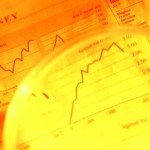 WisdomTree, the New York-based fifth largest provider of exchange-traded funds known for its range of products in equity, fixed income, currency and alternative asset classes, has added a new member in its emerging market equity space.
WisdomTree, the New York-based fifth largest provider of exchange-traded funds known for its range of products in equity, fixed income, currency and alternative asset classes, has added a new member in its emerging market equity space.
The latest entrant – the WisdomTree Emerging Markets Consumer Growth Fund (EMCG) hits the market at a time when the bipartisan deadlock in Washington is showing no sign of a breakthrough and can easily spill over to the looming debt-ceiling debate later this month, causing extreme markets volatilities. Hence, many investors are looking at overseas markets for uncorrelated and potentially more attractive opportunities.
The case for emerging markets may not be new, but it is certainly compelling. The International Monetary Fund expects the emerging market economies to grow at an average annual rate of 6.2 percent by 2018, far outstripping the 2.5 percent that the developed markets are likely to clock. Since 2000, a full 75 percent of economic growth in the emerging markets actually came from growth in consumption.
A report by Euromonitor forecasts a real GDP growth-rate of 5.5 percent in emerging markets in 2013, which is more than twice the rate of developed economies. Risk of a slowdown in consumption-growth appears to be limited as over 50 percent of the population is under the age of 30. Also, the rate of urbanization is at least 10 times higher than developed economies, the report observes.
A separate report by the Organisation for Economic Development (OECD) says the middle class population would grow to 4 billion by 2030 from 1 billion in 2009. During the period, their spending is expected to grow to 70 percent from 35 percent of global middle-class spending, which means EM middle-class consumers will be the dominant force in global consumption in the next 20 years.
The fund will track the WisdomTree Emerging Markets Consumer Growth Index, a rules-based index comprising of 250 consumer staples and discretionary sector stocks that derive at least 60 percent of their revenues from emerging markets.
The index focuses on profitable companies while taking into consideration quality, growth and valuation factors, and has a tilt toward smaller companies since they are more closely tied to local economies compared to their large-cap counterparts. The index is rebalanced annually based on the constituents’ annual income over the prior 4-quarters. EMCG places a 25 percent cap on any individual country and a 5 percent cap on any individual holding, resulting in a well-diversified portfolio.
EMCG is likely to compete with the EGShares Emerging Markets Consumer ETF (ECON), the most successful fund in the emerging market space that has attracted assets over $1.2 billion since its launch in late 2010. However, ECON’s 30-stock portfolio may appear too shallow to those searching for a more diversified exposure over the long-haul.
EMCG has an annual expense ratio of 63 basis points.
Disclosure: No holdings
Contact Ulli